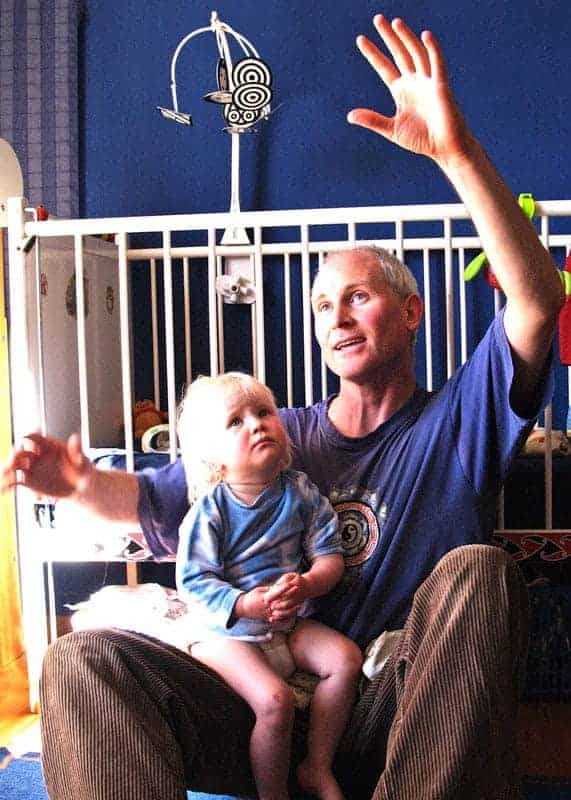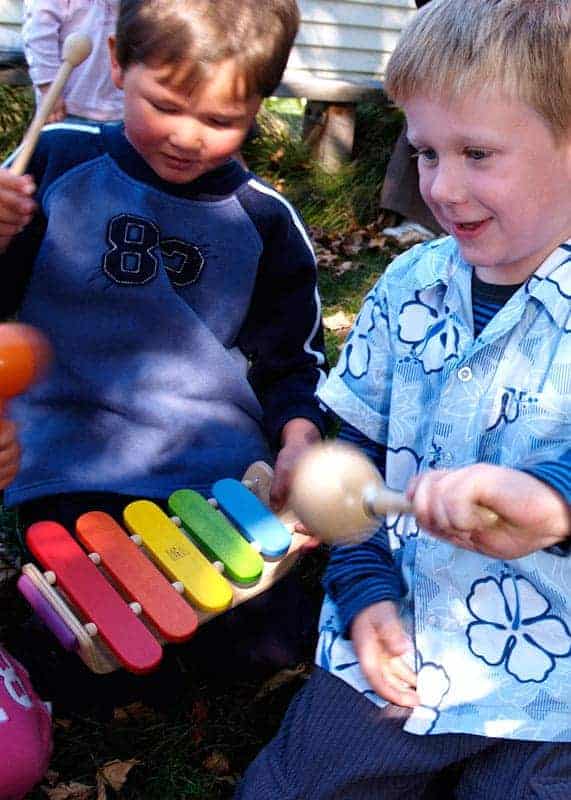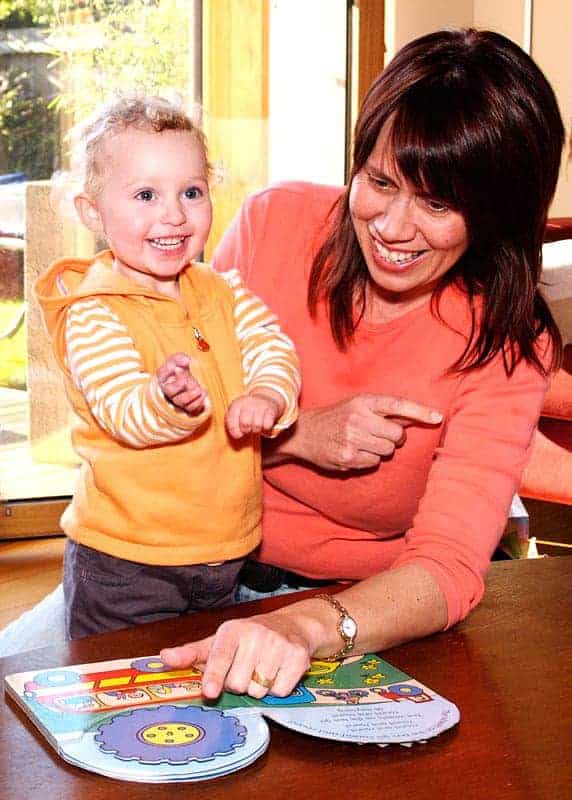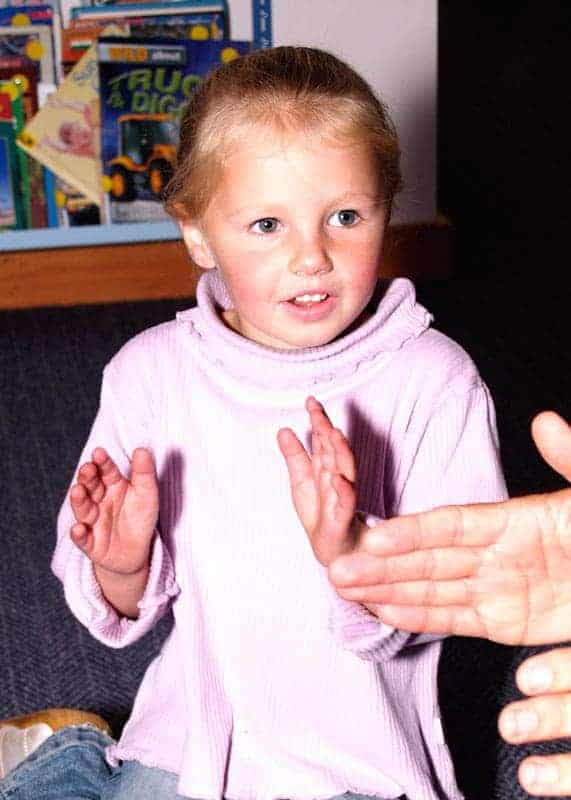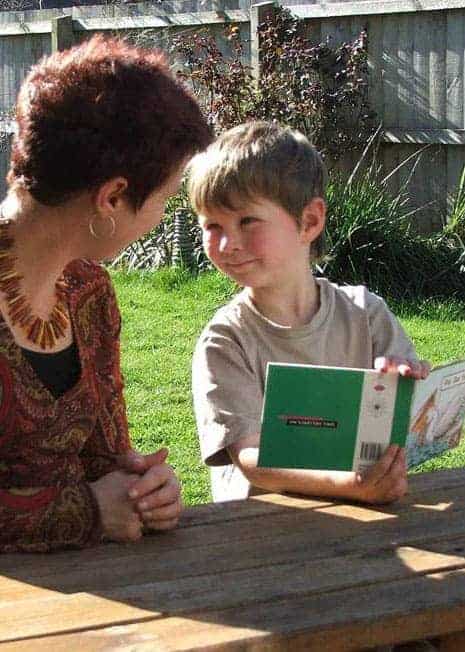Inspiring family learning
Early childhood learning at home
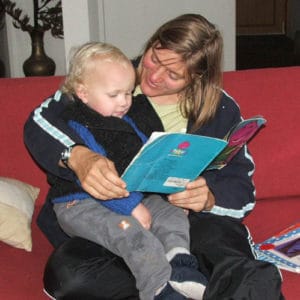
Parents know that for children to be successful in literacy, they need to be able to work out new words, sounding them out for reading and spelling. Many New Zealand schools do not include explicit phonics teaching as part of their reading programme. Often it is the parent who will teach their child how to use phonics if it is not taught at school or the teacher isn’t trained in it.
Children under 5
Teaching your baby from birth
It definitely matters so start early!
Your baby is listening to everything you say and learning an incredible amount from the experiences you provide. Just because your baby cannot talk to you or seems to be oblivious to these activities, do not assume such activities are a waste of time.
These activities shared everyday will have a powerful impact on their developing brain.
• tell nursery rhymes everyday (at nappy changes, in the car, etc)
• sing to your child (songs, rhymes, chants)
• turn off the radio and television so that your child can hear other noises, and appreciate silence
• talk about the sounds you can hear (a dog barking, a car revving, rain on the window)
• listen to nursery rhymes or children’s music CDs
• read to your baby (try reading lying down on the bed with the book held above your faces) choose ‘real’ stories (such as Hairy McClary, Dr Seuss) rather than baby board books
• talk about the stories, point to the pictures, make the noises of the animal characters
• use silly voices and vary your tone and pitch when speaking, singing and reading
• include a cuddle and smiles with all these activities
Advancing your preschoolers literacy
By now your child will be responding and participating more actively in these activities. Even when they choose not to respond, don’t assume they are not listening or learning. They are! To begin, include all of the activities from the Babies (0-2) section followed by:
• encourage your child to rhyme/sing with you and/or the CD
• ask your child to tell you what sounds she can hear (the fridge humming, the tap dripping)
• ask questions about the story for your child to answer (this skill will take a while to develop so you can help with the answers while they are learning)
• clap simple patterns and get your child to try to copy them
• play with instruments
• attend ‘story time’ at the library
• choose library books for sharing at home
• draw pictures
Preschool activity classes
The following classes are helpful for phonic development:
• Gymbaroo: contains almost all of the elements for early literacy development (rhyme, rhythm, listening, making sounds, fine/gross motor skills, vocabulary development, singing, music)
• music classes
• drama/movement classes
Preparing for school
By now your child should be able to:
• say many rhymes
• sing a range of songs/chants
• give rhyming words
• copy a simple clapping pattern (or make one up for you to copy)
• talk about what happened in a story and answer questions about it
• use their voices to make sound effects
• tell you what sounds they can hear around them
• use instruments to create a rhythm
• close their eyes and distinguish – by voice alone – who is speaking
Other school preparation
• read and write their first name
• know some letters and their sounds
• write some letters (lower case only please, except when they write the first letter of their name)
• hold a pencil correctly
• draw a picture and talk about it
• know their colours
• count up and down from one to ten (or higher)
• basic computer skills (how to use a mouse and type their name)
And don’t forget to:
• keep reading to your child everyday, even if they can read already
• encourage your child’s music development, either by singing or playing with instruments at home or by attending lessons
• encourage your child to write: sign their name on a card, help with the shopping list, write a wish list with you, type their name on an email
• encourage your child to read: library books, comics, newspaper kids pages, signs, instructions, packets. it is still very helpful for children to sit and pour over books even if they cannot read the words.
• keep TV/computer work/electronic gaming to a minimum
• ensure some silent times every day in your child’s environment where there is no TV or radio playing
• keep up with rhythm and rhyme activities if your child is not confident with them as they are vital for literacy success.
Children 5 and over
Helping to advance your child's learning
Parents know that for children to be successful in literacy, they need to be able to work out new words, sounding them out for reading and spelling.
Many New Zealand schools do not include explicit phonics teaching as part of their reading programme. Often it is the parent who will teach their child how to use phonics if it is not taught at school or the teacher isn’t trained in it.
Phonics schemes and programmes
There are many phonic schemes available for parents to use at home with their children that are popular and effective, which are also used in schools. These include:
• Jolly Phonics
• Letterland
• Letterlinks
If you can, find out if your school is using a scheme so you can support that one at home. Remember to focus on sounds rather than letter names.
Phonic-focused computer programmes – can be useful as a support in addition to your work with your child (not instead of) but remember that most use non New Zealand accents which can lead to confusion.
Suggestions to reading a word
Here are useful suggestions of what you can do if your child is having problems and feeling stuck.
• ask them to get their mouth ready for the first sound and check the picture to make a good guess
• blend the sounds together to make the word, but first check that the word can be sounded out easily, i.e., ‘dog’ and ‘cat’ are easy to sound out; ‘said’ or ‘there’ are not. Just tell them these words not worked out more easily by thinking about what fits the meaning or by looking at the picture
• encourage them to check that the word that they have sounded out makes sense in the story
• if the unknown word is a high frequency word (common words such as ‘the’, ‘is’, ‘my’ etc.) just tell them the word. Such words are best learnt by memorising rather than phonics.
• if your child is challenged by more than one word in every ten, the book is too hard. Either you read the story to them, or take turns reading each page or unknown word.
Suggestions when spelling a word
Here are useful suggestions of what you can do if your child is having problems and feeling stuck.
• first check that your child wants to spell a word that can be sounded out easily. Words such as ‘saw’ and ‘here’ are best spelt for beginning spellers and then learnt by memorising
• tell them to say the word slowly. Ask your child to tell you the first sound they can hear in the word. After they give you the sound, then tell them to write it down
• ask the child for the last sound they can hear. Help them to say the word slowly to help them hear it. Leave a gap after the first sound written down and write the last sound
• ask your child if they can hear any middle sounds. Write these sounds in the gap between the first and last sounds
• praise them for their good work
• if your child needs to sound out more than one word in each sentence, just give them the other spellings so that writing does not become a struggle focused entirely on spelling
• after they has written each sentence, encourage them to reread it to check that what they has written sounds right and makes sense.

